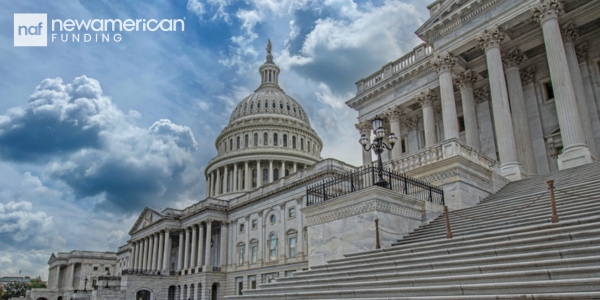Housing News
Brexit Affected Rates, But What Else Does It Mean?
July 14, 2016
I had the unique fortune to be in London shortly after the Brexit vote just a few weeks ago and talked to a few Brits about their opinions on Brexit itself. By and large, the vote was not about national security and had more to do with the EU controlling their country instead of their own elected democracy. For a country that prides itself on its rich history and global domination for centuries, it's not hard to imagine they don't want to be controlled by the EU (especially given the current state of other EU countries). That's all fine and dandy but why did the 10-year drop from 1.75% to 1.36% in a matter of days (currently at 1.50%)? The short answer is London.
The City of London is also a county with a size of only 1.1 square miles and only 8,000 residents. Still very population-dense, but a very small area and there are approximately 360,000 workers in that square mile, which is the financial center of the EU. There are over 200 foreign banks and 300 total banks in that square mile. Here is the rub, since a majority of the trading in the EU is done in London and Britain will no longer be part of the EU, the trading and job losses to London could be material. The uncertainty of how material Brexit will be is causing the volatility in the market we see today.
One other fact about London that's important to this discussion is that the City of London has its own rules and regulations that are different from the rest of Britain. Think of it as the Cayman Islands of Europe. There is a reason why 300+ banks are located within that square mile, and only within that square mile. That will not change with the vote, but the influence that Britain has on other EU nations could change. That's the uncertainty, how many jobs will be eliminated or moved to other countries, and how much money will move? Several banks have stated they will lay off thousands of workers in London if Brexit passes. Some of those same banks are now having second thoughts. So what is the impact of Brexit?
The answer is definitive as a Fed rate change. At this point, there is only speculation with little fact or ability to predict the future. Brexit could be the start of a large trend of a dismantling of the EU. Lawyers could hold up and stop Brexit. Fears of the damage Brexit causes globally could be overstated. The impact on Britain could be overstated, or understated. Everything is a possibility at this point. I would expect continued volatility until the picture of reality begins to appear.
Turning back to US rates, non-farm payrolls last week created a few surprises. Jobs added in June totaled 287k versus 180k estimated and May was revised down from 38k to 11k jobs added. The unemployment rate has gone up to 4.9% from 4.7%. This is a mixed bag as 287k jobs is a huge increase but the unemployment rate did go up and May was revised down to almost zero. The probability of a rate hike this year currently sits at 35%. I hate to mention the Fed because this year has been about the bigger picture of global economic and geopolitical surprises that have caused even the Fed to cut its rate projections twice already this year.
My final thought is that the impact of Brexit is difficult to determine right now and it could be months before it becomes clear. In the interim, I would focus on the global picture of continued challenges and an FOMC completely uncertain about when to increase rates. The economy certainly has not given them a reason. In my opinion, we may settle into a lower range in rates than what we saw earlier this year when the 10-year traded between 1.60 and 2.00%. I would call 1.40% the floor with the possibility of moving up to 1.80%. If we hold below 1.40% for a week then a new range may be established and volatility could heat up. It's anyone's guess.






 Smart Moves Start Here.
Smart Moves Start Here.